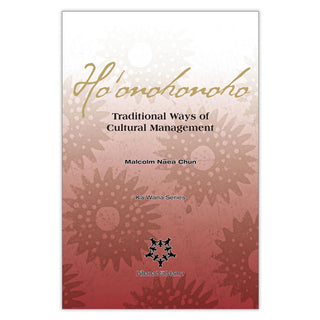Can culture- and tradition-bound Hawaiians survive in the modern business world? This is a question that has been asked over and over as economic prosperity has risen in the islands but by-passed the Hawaiian community. International economic initiatives and development began with the first tourists—the British explorers that accompanied Captain James Cook in 1778. But systems for managing natural and human resources in the island chiefdoms were well established prior to their arrival. Malcolm Nāea Chun examines the account of both Native and non-native writers to discover what he calls “cultural management,” then explores how its tools and techniques can be used today for organizations that want to be culturally based, and to operate effectively in the modern business world.
This book is one of twelve short volumes of the Ka Wana series, which is part of the Pihana Nā Mamo Native Hawaiian Education Program.
Can culture- and tradition-bound Hawaiians survive in the modern business world? This is a question that has been asked over and over as economic prosperity has risen in the islands but by-passed the Hawaiian community. International economic initiatives and development began with the first tourists—the British explorers that accompanied Captain James Cook in 1778. But systems for managing natural and human resources in the island chiefdoms were well established prior to their arrival. Malcolm Nāea Chun examines the account of both Native and non-native writers to discover what he calls “cultural management,” then explores how its tools and techniques can be used today for organizations that want to be culturally based, and to operate effectively in the modern business world.
This book is one of twelve short volumes of the Ka Wana series, which is part of the Pihana Nā Mamo Native Hawaiian Education Program.

